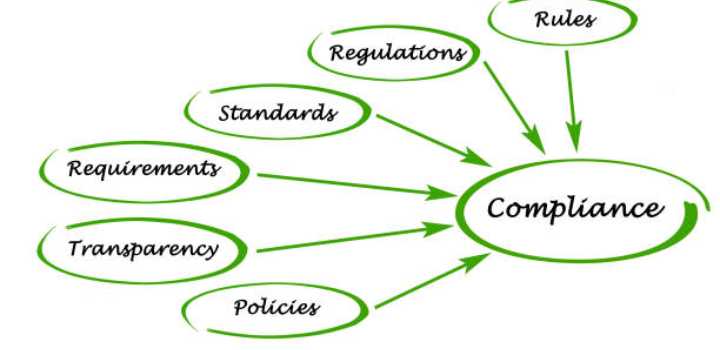Businesses that deal with manufacturing, importing, or distributing goods in India must comply with several regulatory frameworks. Among the most important are EPR Compliance and Legal Metrology for Prepackaged Commodities. These two areas ensure environmental responsibility, consumer protection, and market transparency. Organizations that understand and implement these regulations not only avoid legal penalties but also build stronger credibility with customers and stakeholders.
What is EPR Compliance?
EPR Compliance, or Extended Producer Responsibility compliance, is a policy approach where producers are held responsible for the entire lifecycle of their products. This includes the post-consumer stage, such as collection, recycling, and safe disposal of waste. The concept is especially important for sectors like plastics, e-waste, batteries, and packaging materials.
Producers, importers, and brand owners (often referred to as PIBOs) are required to register with the Central Pollution Control Board (CPCB) and submit detailed action plans. These plans outline how they will manage the collection and recycling of the materials they introduce into the market. By adhering to EPR Compliance, businesses contribute to reducing waste, conserving resources, and promoting sustainable practices.
Importance of EPR Compliance for Businesses
Ignoring EPR Compliance can result in heavy fines, suspension of operations, and reputational damage. Companies that take this responsibility seriously enjoy multiple advantages:
- Environmental sustainability: Proper collection and recycling reduce the burden on landfills and natural resources.
- Legal protection: Meeting compliance requirements protects businesses from penalties and shutdowns.
- Brand value: Customers increasingly prefer companies that demonstrate eco-friendly practices.
- Global acceptance: Export-oriented businesses benefit from aligning with international sustainability norms.
In essence, EPR Compliance is not just about meeting legal obligations; it is about integrating sustainability into the core of business operations.
What is Legal Metrology for Prepackaged Commodities?
While EPR addresses environmental responsibility, Legal Metrology for Prepackaged Commodities ensures fairness and transparency in trade. The Legal Metrology Act, 2009, governs packaging, labeling, and measurement requirements in India. Any product that is sold in a prepackaged form must comply with these regulations.
This includes clear labeling of:
- Quantity and weight
- Manufacturer or importer details
- Maximum retail price (MRP)
- Manufacturing and expiry dates
- Customer care information
By following Legal Metrology for Prepackaged Commodities, businesses create a transparent marketplace where consumers are well-informed and protected against unfair practices.
Why Legal Metrology for Prepackaged Commodities Matters
Non-compliance with Legal Metrology for Prepackaged Commodities can lead to fines, product seizures, and loss of consumer trust. For businesses, compliance ensures:
- Transparency: Customers know exactly what they are buying.
- Fair competition: All players in the market follow the same standards.
- Consumer trust: Accurate labeling helps consumers make informed decisions.
- Regulatory approval: Products that meet the rules can be sold legally across states.
Thus, compliance with Legal Metrology for Prepackaged Commodities is crucial for smooth operations and long-term growth.
The Connection Between EPR Compliance and Legal Metrology
Although EPR Compliance and Legal Metrology for Prepackaged Commodities address different concerns, they are closely connected. Together, they form the foundation of responsible business practices.
For instance, when a company sells prepackaged goods, it must ensure correct labeling under legal metrology. At the same time, the packaging material itself must fall under EPR Compliance, meaning the company is responsible for its recycling or disposal.
This combined approach ensures that businesses:
- Protect consumers with accurate information
- Protect the environment through sustainable practices
- Maintain smooth operations without regulatory interruptions
Steps to Achieve Compliance
Businesses looking to meet both EPR Compliance and Legal Metrology for Prepackaged Commodities can follow these steps:
- Understand requirements: Study the guidelines issued by CPCB and the Legal Metrology Department.
- Register officially: Obtain the necessary licenses and approvals for your operations.
- Maintain records: Keep detailed documentation of waste management, packaging, and product labeling.
- Work with experts: Compliance consultants can guide businesses through registration and reporting.
- Train staff: Employees should be aware of labeling, packaging, and recycling obligations.
- Submit reports: Regular reporting to authorities ensures transparency and ongoing compliance.
Benefits of Integrating Both Regulations
When businesses implement both EPR Compliance and Legal Metrology for Prepackaged Commodities, they gain a strategic edge. Some key benefits include:
- Regulatory security: No risk of legal disputes or penalties.
- Enhanced reputation: Customers view the brand as responsible and trustworthy.
- Operational efficiency: Clear processes for packaging and waste management streamline business activities.
- Market advantage: Compliance allows easy expansion into domestic and international markets.
Conclusion
For manufacturers, importers, and brand owners, aligning with EPR Compliance and Legal Metrology for Prepackaged Commodities is no longer optional. These frameworks ensure that businesses are environmentally responsible and legally transparent while protecting consumer interests. Companies that embrace these regulations position themselves for long-term success, sustainability, and stronger customer trust.



